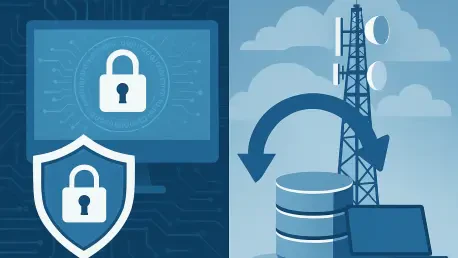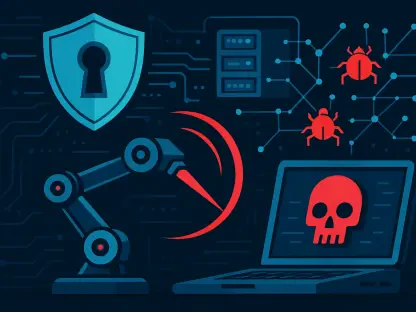Picture a nation’s communication networks—arteries of modern life—left exposed to relentless cyberattacks from foreign adversaries, with no mandatory shield in place to protect them. This scenario isn’t a distant dystopia; it’s the reality unfolding after the Federal Communications Commission (FCC) made a stunning decision to scrap cybersecurity mandates for telecom companies. In an era where cyber espionage campaigns like Salt Typhoon, attributed to China, have already breached critical infrastructure, this policy shift has sent shockwaves through the security community. What does it mean for the safety of sensitive data and the backbone of American society?
Why This Decision Resonates Across the Nation
The FCC’s ruling to reverse cybersecurity requirements under the 1994 Communications Assistance for Law Enforcement Act (CALEA) isn’t a mere administrative tweak—it’s a pivot with profound implications for every citizen. Telecom networks carry everything from personal conversations to classified government transmissions, making them prime targets for hostile actors. With incidents like Salt Typhoon exposing how easily these systems can be infiltrated, the rollback of mandatory protections raises a critical question: can voluntary industry efforts truly safeguard the nation against sophisticated cyber threats?
This decision strikes at the heart of a broader debate about responsibility. Should the government enforce strict standards to secure vital infrastructure, or should telecom companies be trusted to self-regulate? The stakes are not abstract; they involve the integrity of data that underpins daily life and national defense. As cyberattacks grow in frequency and complexity, the urgency to resolve this tension has never been greater.
Behind the FCC’s Controversial Vote
The FCC’s 2-1 vote to eliminate cybersecurity mandates revealed a deep divide within the agency. Chairman Brendan Carr, alongside Republican colleague Olivia Trusty, spearheaded the reversal, arguing that the prior rules, enacted at the tail end of the previous administration, were both unlawful and impractical. Carr emphasized a preference for voluntary industry commitments, citing their flexibility as a better path to bolster network security without stifling innovation.
Telecom companies quickly endorsed the decision, having long opposed mandatory regulations as overly burdensome. Industry spokespersons highlighted recent strides in cybersecurity, such as accelerated vulnerability patching and enhanced threat detection, as proof of their ability to self-govern. They pointed to improved collaboration with federal agencies post-Salt Typhoon as evidence that mandatory oversight isn’t necessary to protect critical systems.
Critics, however, painted a grimmer picture. Democratic Commissioner Anna Gomez, who dissented in the vote, warned that voluntary measures lack the enforceability needed to counter nation-state hackers. She referenced the Salt Typhoon breach, which exploited telecom weaknesses to access sensitive information, as a stark warning of the risks at hand. Gomez argued that without binding standards, the nation remains dangerously exposed to future attacks.
Expert Warnings and Industry Defenses
Voices from Capitol Hill amplified the concerns over the FCC’s move. Senator Gary Peters, ranking member of the Senate Homeland Security Committee, cautioned that this rollback “puts Americans at greater risk” during a time of escalating cyber threats. Similarly, Senator Maria Cantwell, ranking member of the Senate Commerce Committee, criticized the decision for weakening the FCC’s ability to hold carriers accountable, stressing that consumer trust hinges on robust protections.
On the other side, Chairman Carr defended the industry’s progress, noting specific improvements like network hardening and real-time information sharing with government partners. He argued that these voluntary efforts, especially in the wake of incidents like Salt Typhoon, demonstrate a viable alternative to rigid mandates. Yet, Gomez countered with a pointed critique, asserting that self-regulation without accountability is akin to leaving the door unlocked for foreign adversaries—an analogy that underscores the gravity of the disagreement.
The clash of perspectives reveals a fundamental rift. While industry advocates celebrate the freedom to innovate, security experts and Democratic leaders fear that this liberty comes at the cost of vulnerability. With cyberattacks increasing by 30% annually according to recent cybersecurity reports, the debate over how to protect telecom networks remains unresolved, leaving the public caught in the crossfire.
Charting a Path Forward for Network Security
Amid the fallout from the FCC’s decision, actionable strategies emerge as potential solutions to bridge the gap between regulation and autonomy. One approach involves enhancing voluntary frameworks with government oversight, setting clear benchmarks for telecom companies—such as mandatory breach reporting within 72 hours or specific timelines for patching vulnerabilities. This hybrid model could ensure accountability while preserving industry flexibility.
Another vital step lies in deepening public-private partnerships. Structured collaborations between telecom providers and federal agencies could facilitate real-time threat intelligence sharing, enabling quicker responses to attacks like Salt Typhoon. Historical data shows that joint efforts during past cyber crises reduced response times by nearly 40%, suggesting that formalized cooperation could be a game-changer.
Finally, transparency must play a central role. Telecom companies could be encouraged to publicly disclose their cybersecurity practices and incident response plans, empowering consumers to make informed choices. Coupled with potential legislative action from Congress to codify minimum standards for critical infrastructure, these measures offer a multifaceted approach to securing networks in an increasingly hostile digital landscape.
Reflecting on a Divisive Turning Point
Looking back, the FCC’s decision to abandon mandatory cybersecurity rules for telecom companies marked a contentious chapter in the ongoing battle to protect America’s communications infrastructure. The 2-1 vote, driven by a belief in industry self-regulation, stood in stark contrast to the warnings of critics who saw it as a reckless gamble with national security. The Salt Typhoon incident lingered as a haunting reminder of the vulnerabilities that persisted without enforceable standards.
As the dust settled, the path ahead demanded innovative solutions and renewed collaboration. Policymakers were urged to explore hybrid oversight models, while industry leaders faced pressure to prove that voluntary commitments could withstand the test of sophisticated cyber threats. For the public, staying informed and advocating for transparency became essential steps in holding both government and corporations accountable.
Ultimately, the resolution of this debate hinged on a delicate balance—finding ways to fortify critical networks without stifling progress. The lessons learned from this policy shift underscored the need for vigilance and adaptability, ensuring that future strategies prioritized both security and innovation in equal measure.









